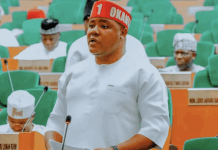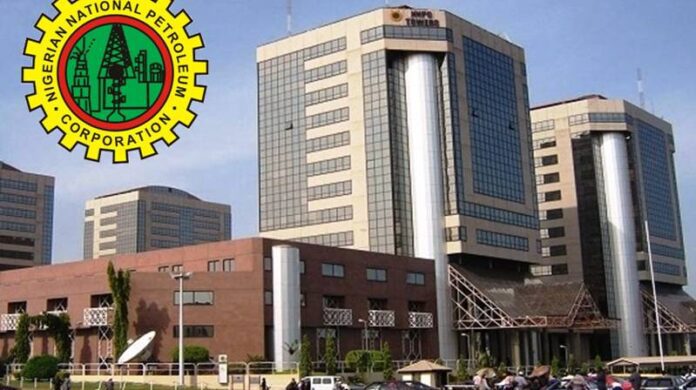The Nigerian National Petroleum Company Limited announced Thursday that it would stop importing refined petroleum products by December 2024 when all refineries would be operating.
The national oil business said it would grow its revenue to N4.5tn by 2023 and rehabilitate the Port Harcourt Refining Company by December.
Mele Kyari, the Group Chief Officer of NNPCL, announced this when he led business officials to a meeting with House Speaker Tajudeen Abbas, who urged for the privatization of Nigeria’s refineries.
Also, oil marketers, on Thursday, reaffirmed the readiness of the Port Harcourt refinery, as they claimed that its activities, which might commence in January 2024, will contribute to a huge decline in the pricing of refined petroleum products.
Kyari said at the Abuja summit that Nigeria would stop importing refined petroleum products in 2024 and become a net exporter.
He also explained Port Harcourt, Warri, and Kaduna refinery openings.
The CEO claimed all refineries would be operational and the country would become a net exporter of petroleum products by 2024.
Petrol subsidy
He blamed the fuel subsidy for dormant refineries in Nigeria throughout the years, adding that its elimination was already drawing private investment.
Kyari said, “I can confirm to you that by the end of December this year, we will start the Port Harcourt refinery; early in the first quarter of 2024, we will start the Warri refinery; and by the end of 2024, the Kaduna refinery will
We promise this today, and you can hold us accountable. Many projects, including refinery restoration, small-scale refineries, and the Dangote plant, will make Nigeria a net petroleum exporter in 2024.
We won’t talk about gasoline importation after 2024. I believe this will crystallize, he said.
Since NNPCL currently returns value to shareholders in conformity with the Petroleum Industry Act, Kyari promised N4.5tn in government income by 2023.
After NNPCL stopped oil swaps, Nigeria spent N843bn per month on petrol imports, according to October report.
The Nigerian Midstream and Downstream Petroleum Regulatory Authority reported in July that between June 1 and June 28, 2023, the post-deregulation period, the country consumed 1.36 billion litres of petrol, with an average daily consumption of 48.43 million.
Petrol from NNPCL, the sole importer, costs roughly N580/litre ex-depot.
On Thursday, the NNPCL and oil marketers announced that the Port Harcourt refinery would begin manufacturing refined petroleum products in January 2024, reducing this massive oil import fund.
Billy Gillis-Harry, president of the Petroleum Products Retail Outlets Owners Association of Nigeria, informed one of our journalists that he visited the factory to see for himself and found it ready.
The Federal Government declared in August that the Port Harcourt refinery would be rehabilitated by December 2023.
On Thursday, NNPCL Chief Corporate Communications Officer Olufemi Soneye said, “Scheduled for the end of December 2023, the Port Harcourt refinery project is proceeding as planned without any issues. No change in delivery date. The work continues.”
PETRON president
The PETROAN president said the Port Harcourt refinery would start operations based on oil union findings.
Gillis-Harry remarked, “I can confirm that the refinery is getting set for production. I’ve been there and will again Friday morning. I want to stand near one active location and take a photo of it to give to you.
“The Port Harcourt refinery is on track. I am working on a committee that is reviewing these topics. I won’t name the committee because it’s a covert mission. I guarantee you they are set.
There are several options, and they can easily set it up and pump. They should be ready to make and distribute by January, and if you contact me in the morning, I’ll be at the refinery and play you a video to explain.
Gillis-Harry said PMS prices will decline when the Port Harcourt refinery starts.
“It is simple—PMS cost will be reduced by importation, port rate, and shipping costs. Load products and transport them across Nigeria from here.
“All we need to do is distribute production fairly. Thus, the refinery will save the federal government forex once it begins production.
Chief John Kekeocha, National Secretary of the Independent Petroleum Marketers Association of Nigeria, asked the NNPCL to start the Port Harcourt refinery on time.
“The refinery will help increase fuel supply by addressing Nigeria’s fuel shortage and high cost. After opening in December or January, it will increase supply in price and quantity.
That’s fine if they can. They may then switch to Warri and Port Harcourt refineries. This will help and we don’t want excuses. They must strive hard to reach this aim because it will have a huge economic impact.
Kekeocha said that crude oil was a major component in the creation of refined petroleum products, therefore its price would still affect refinery products.
Since we practice deregulation, when the Port Harcourt refinery starts producing, the refined products will be cheaper if crude oil declines, but if it rises, they would cost more.
This is because crude oil refiners will acquire the product at international prices. Only if we practice subsidizing will it not effect us.
Privatize refineries today
The Speaker of the House of Representatives urged for oil refinery privatization at the meeting with NNPCL officials to address the oil sector’s chronic crisis.
Abbas called the refineries disgraceful and noted that NNPCL workers had been paid, promoted, and cared for for decades despite working less than a month.
He stated, “These refineries need multi-dimensional uses. If crude oil is gone, what else can keep workers busy so they may earn what they deserve? I need you and your management to figure out how to reverse these decades of losses.
Privatizing these refineries is one way. We’ve spent so much money and time convincing ourselves that the government can operate some enterprises.
“In refineries, we now know that some NNPCL sectors
Our refineries are private-sector businesses.
As soon as the Dangote refinery gets on board, competition will expose refineries’ inefficiencies.
I want you to make privatizing our refineries a priority so they can operate. Soon, they can compete with new refineries, he said.
Abbas said the NNPCL is vital to Nigeria’s economic growth and that the house will help it flourish.
He said the House is concerned about increasing oil theft, which is depleting income, impacting FX availability, and causing inflation.
The Speaker said the House had established a special oil theft committee to work with partners to combat oil theft.
Join Television Nigerian Whatsapp Now
Join Television Nigerian Facebook Now
Join Television Nigerian Twitter Now
Join Television Nigerian YouTUbe Now






















